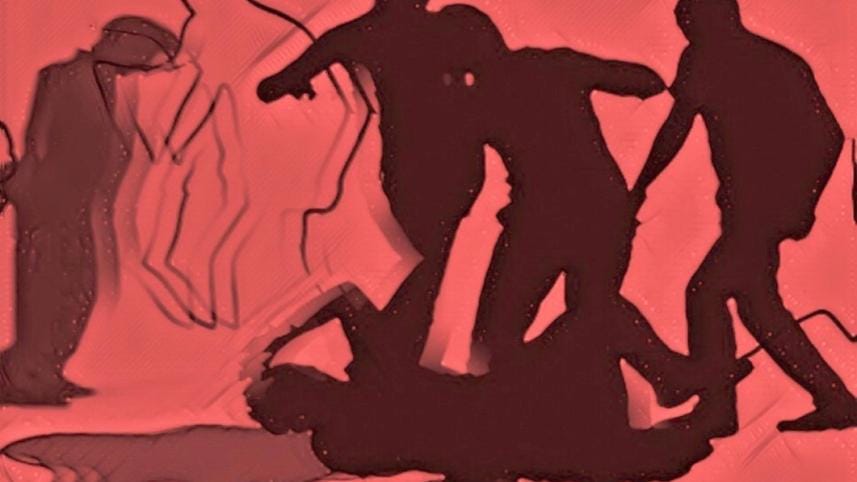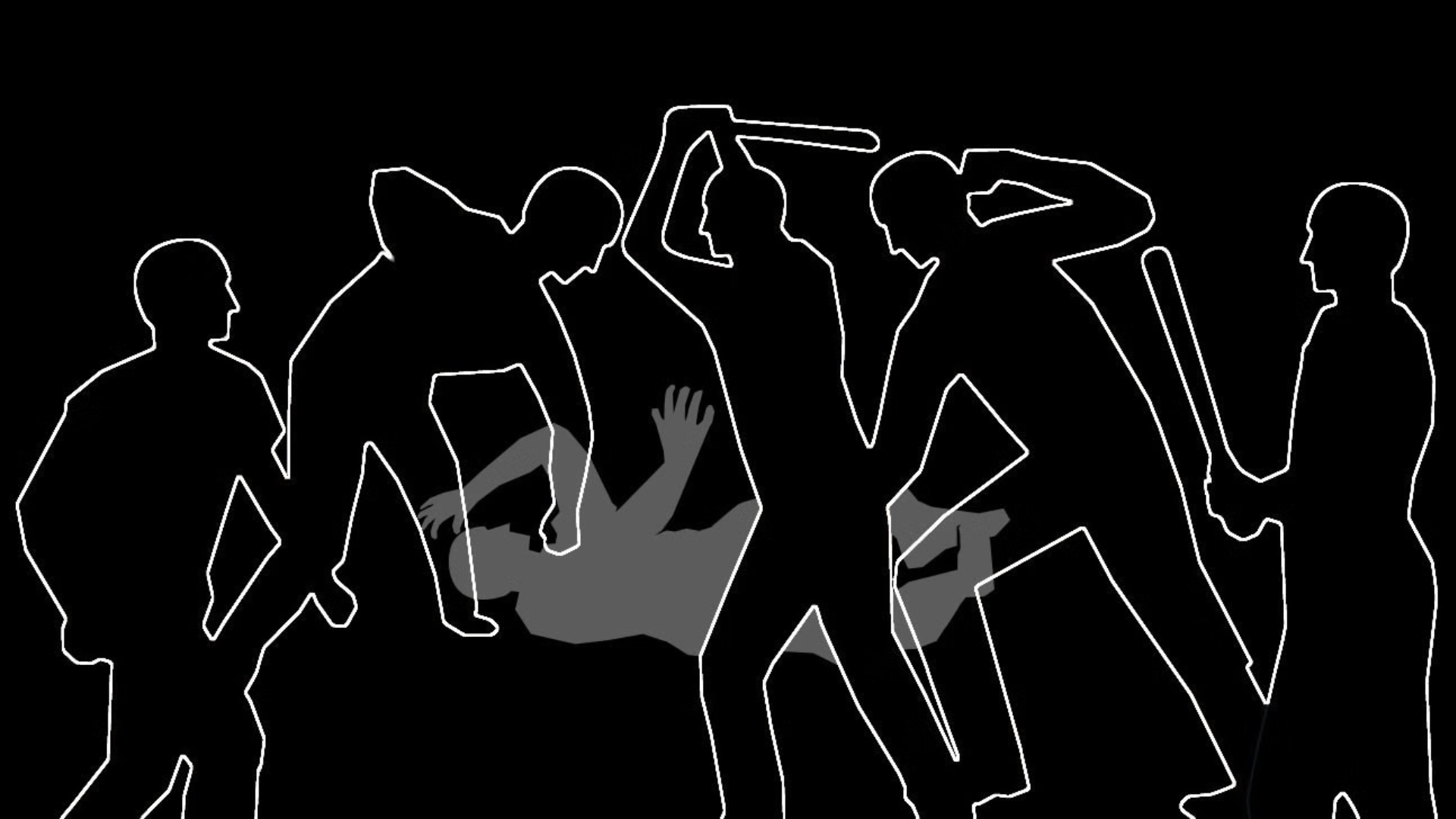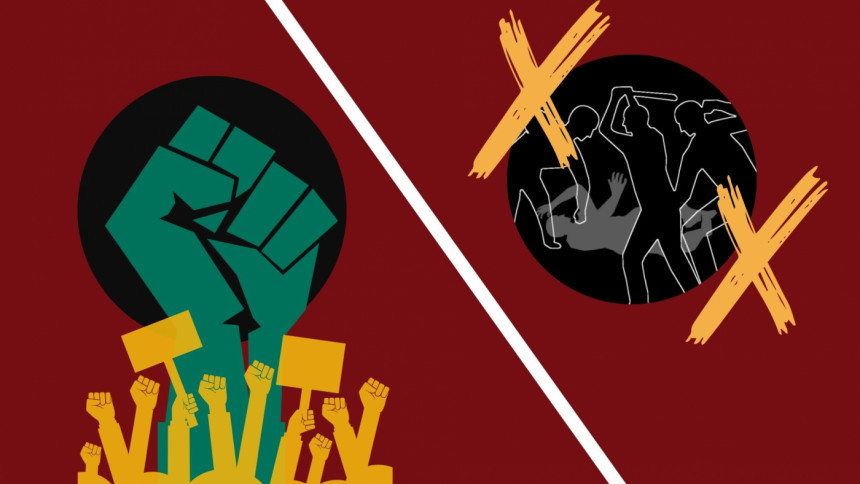Mob violence: When the law of the crowd takes over

It often starts with a whisper. The whisper grows louder, the crowd gathers, and soon, violence erupts. By the time the police arrive, if they arrive at all, someone suffers serious injuries; sometimes, a life is lost. Since the July uprising, Bangladesh has witnessed scenarios like these repeatedly. Very recently, in Narayanganj, a suspected thief was beaten to death before law enforcement could intervene. In Bogura, a rumour of blasphemy sparked deadly violence that left a man dead and shops destroyed. On the outskirts of Dhaka, political disputes spilt into mob attacks. Together, these incidents tell a deeper story of a nation grappling with fear and uncertainty.
History shows that mob violence is not unique to Bangladesh. Communities under stress have long lashed out at their own. In 1692, in Salem, Massachusetts, US, fear of disease and religious anxiety turned neighbours against each other. Accusations of witchcraft spread, trials were staged, and more than 20 innocent people were executed. The trials were never truly about "witches." They were about a community overwhelmed by fear and desperate to reassert control. A century later, revolutionary France followed a similar path. The monarchy fell, but joy gave way to paranoia. Fear transformed into the Reign of Terror. Thousands were executed, not just as punishment but as public reassurance. The people, unable to shake their dread, tried to find safety in blood. Both Salem and Paris reveal the same pattern. When fear dominates, societies look for scapegoats. Violence becomes a way to quiet anxiety, even as it tears communities apart.
French philosopher Michel Foucault helps us see why. In Madness and Civilization, he explained that societies mark certain people as "dangerous" not only because of what they have done but because punishing them reassures everyone else. Excluding or attacking them draws a symbolic line between order and disorder. Foucault also reminded us that power does not belong only to kings or governments. It seeps into everyday life. It is exercised in schools, workplaces, and, in times of chaos, in mobs. A crowd lynching a man in a marketplace is not only committing violence; it is claiming authority, declaring who belongs and who does not. When state institutions falter, this diffuse power takes over. Fear and rumour become the new law.
This is the reality facing Bangladesh since July 2024. The uprising toppled a political order but left behind questions that remain unanswered. Institutions appear fragile. Citizens are unsure. In this uncertainty, crowds step in to fill the void. The recent incidents of mob violence show a clear pattern. They are expressions of a society trying to manage its fear without trusted institutions to rely on. The danger is that each act of mob violence further weakens faith in the rule of law. The more people watch mobs mete out "justice," the less confidence they place in the courts or police. And as faith erodes, reliance on mob action grows. It is a vicious cycle in which fear fuels violence and violence deepens fear.
History warns us of the cost of leaving fear untreated. Salem destroyed its own trust before realising the frenzy had gone too far. Revolutionary France spiralled into terror, and in the end, exhausted citizens gave up freedom for Napoleon's authoritarian stability. Violence meant to reassure ended up suffocating liberty. Bangladesh must not repeat those mistakes. The answer cannot only be force. Policing mobs is necessary, but why mobs form must also be addressed. The deeper task is to rebuild trust so people no longer feel compelled to take justice into their own hands. That means institutions must work faster and more fairly. Communities must also play a role. Schools and universities can equip young people with the skills to question rumours, test information, and resist mob mentality. A generation trained to pause before condemning is less likely to join in violence.
Perhaps the most important step is to recognise that mob violence is not just about crime. It is also about fear and psychological stress. Economic hardship, political upheaval, and long-term frustration create a climate where people act on dread rather than reason. To treat mob violence only as a legal problem is to miss the root of the issue. Bangladesh must begin to treat mental health as part of its national resilience. Counselling services should be expanded in schools, workplaces, and local clinics. Public awareness campaigns can challenge the stigma around seeking help. Community dialogues can give people safe spaces to express grievances before they erupt.
The July uprising showed the power of ordinary people to demand change. But the harder test comes now. Can that power be turned into stability? If Bangladesh can rebuild institutions that deliver justice fairly, if communities can speak against rumours before they escalate, and if citizens are given the tools and support to process uncertainty without violence, then this moment need not be remembered for mob killings. But if fear is left to spread, whispers will keep turning into shouts, and shouts into blows. The uprising will then be remembered not for what it promised but for what it lost. Bangladesh must decide whether it will let crowds rule through fear, or whether it will build the trust and resilience needed for lasting freedom.
Tahsina Nasir is a PhD student at Georgia State University specialising in world history, with a focus on South Asian migration.
Views expressed in this article are the author's own.
Follow The Daily Star Opinion on Facebook for the latest opinions, commentaries and analyses by experts and professionals. To contribute your article or letter to The Daily Star Opinion, see our guidelines for submission.




 For all latest news, follow The Daily Star's Google News channel.
For all latest news, follow The Daily Star's Google News channel. 

Comments